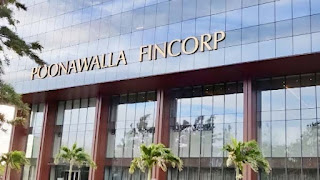The Critical Role of Financing in MSME Growth
Micro, Small, and Medium Enterprises (MSMEs) play an essential role in India’s economy. They contribute approximately 30% to the GDP, account for nearly half of the country’s exports, and provide employment to over 110 million individuals. MSMEs are widely distributed across manufacturing, services, trade, and rural industries, making them indispensable to both urban and regional development.
Despite this significance, access to formal finance remains a long-standing challenge for the sector. Timely and adequate credit is vital for business continuity, technological upgrades, and working capital needs. However, a large portion of MSMEs are still underserved by formal financial institutions, inhibiting their potential for expansion and sustained contribution to the national economy.
The MSME Credit Gap and Evolving Financial Infrastructure
India’s MSME sector faces a credit gap estimated at over $300 billion. Traditional lenders often hesitate to extend credit due to factors such as the absence of collateral, irregular cash flows, or limited credit history. Many MSMEs also operate in informal setups with insufficient documentation, making them ineligible under standard risk assessment frameworks.
However, recent developments in India’s digital financial infrastructure are enabling more nuanced evaluation of MSMEs. The emergence of credit bureau data, the Goods and Services Tax (GST) network, and account aggregator frameworks have made real-time financial data more accessible. This shift allows lenders to assess creditworthiness based on actual business performance rather than legacy documentation alone.
As a result, financial institutions are increasingly adopting digital-first, risk-calibrated models to bridge the credit gap for this vital sector.
Also Read: Study Abroad Loans Simplified: IDP and Poonawalla Fincorp's New Move
Poonawalla Fincorp: A Digital-First, Risk-First Approach
Poonawalla Fincorp, a Cyrus Poonawalla Group-promoted NBFC, has introduced a new digital offering tailored specifically to MSMEs — Business Loan 24/7. This product represents a notable shift toward fully digital MSME financing. It leverages a Straight Through Processing (STP) model, enabling a 100% paperless journey from application to disbursal. This eliminates the need for physical branch visits or document submissions.
What distinguishes this offering is its risk-first design. By integrating with public digital infrastructures like GST systems, credit bureaus, and account aggregators, the product uses real-time, source-based data for credit evaluations. This allows for more comprehensive risk assessments, especially for self-employed individuals and MSMEs that may not meet conventional criteria.
PFL has made it clear that this product will be built into its portfolio gradually, in a risk-calibrated manner, ensuring that credit growth remains responsible and sustainable. The company aims to target MSMEs across Tier 1, Tier 2, and Tier 3 cities in sectors such as retail, services, manufacturing, and trade.
Also Read: How Poonawalla Fincorp and IDP Education Are Empowering Indian Students
SIDBI: Policy-Aligned Institutional Financing
The Small Industries Development Bank of India (SIDBI) has been a cornerstone of institutional support for MSMEs since its establishment in 1990. As a principal financial institution for the sector, SIDBI performs multiple roles: direct lending, refinancing to other financial institutions, credit guarantee facilitation, and the implementation of various central and state government schemes.
SIDBI supports credit through specialized programs like the Credit Guarantee Fund Trust for Micro and Small Enterprises (CGTMSE), which enables collateral-free lending. Additionally, its funding initiatives under schemes like SMILE (SIDBI Make in India Loan for Enterprises) provide soft loans for MSMEs, particularly in manufacturing.
Through its national reach and alignment with policy priorities, SIDBI ensures that institutional credit is accessible to a wide variety of businesses, including those in underserved and remote areas.
HDFC Bank: Scale and Technology Integration
Among private sector banks, HDFC Bank has developed a robust MSME portfolio supported by both scale and digital innovation. It offers a diverse range of lending products including working capital loans, equipment financing, and trade services.
HDFC Bank’s strength lies in its hybrid model that combines traditional banking infrastructure with digital tools. Solutions like the SmartHub Vyapar app allow MSMEs to manage invoicing, payments, and loan applications through a unified digital platform. The bank’s wide reach ensures coverage across both urban and semi-urban regions, making financial products accessible to a broad MSME base.
By blending technology with strong customer relationships, HDFC Bank continues to be a significant enabler of MSME credit in India.
Financing as a Growth Enabler
The landscape of MSME financing in India is undergoing a transformative shift. With the rise of digital tools, refined risk assessment models, and a collaborative financial ecosystem, access to credit is becoming more inclusive and responsive.
Institutions like Poonawalla Fincorp, SIDBI, and HDFC Bank exemplify different approaches to solving the MSME credit challenge — from digital-first lending models and policy-aligned guarantees to hybrid banking solutions. Each plays a vital role in expanding the reach and effectiveness of MSME financing.
To unlock the full potential of the sector, it is essential that financing solutions continue to evolve, balancing innovation with responsibility. When capital flows efficiently to MSMEs, it not only fuels enterprise growth but also accelerates job creation, exports, and overall economic resilience.





Comments
Post a Comment